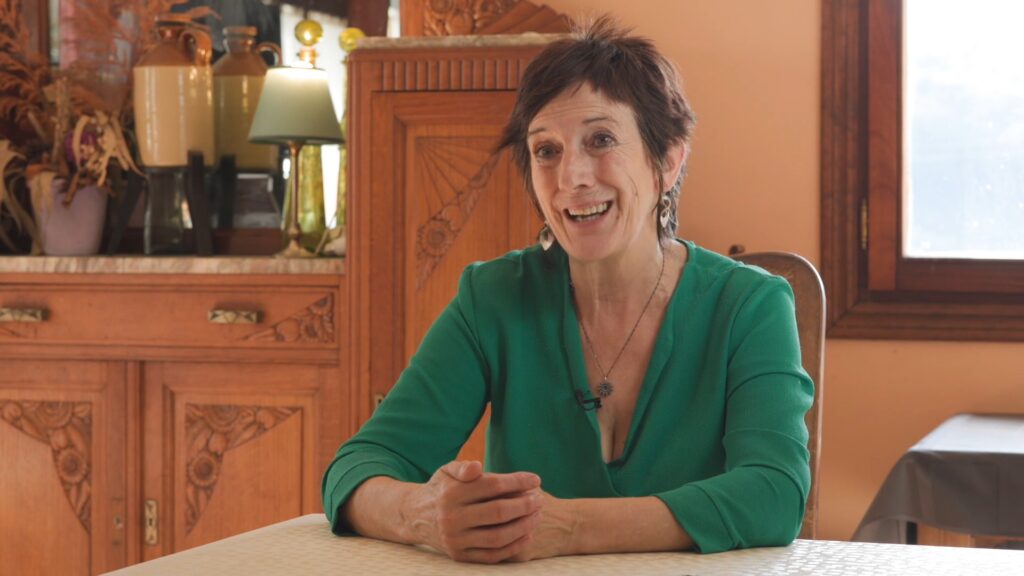
Maite Aristegi, peasant, lawyer, former General Secretary of the agricultural union EHNE (1997-2002), member of the Spanish Congress as representative of the Basque Sovereignist Left (2011-2015) – Bergara, Gipuzkoa
Maite was born and grew up in the Lamaño Etxeberri farmhouse, where from a very young age she helped with farming tasks, selling milk and vegetables with her mother, and learned the value of a job well done, caring for the land and the direct relationship with customers. Although she wanted to study nursing, being the only daughter among five siblings, her parents encouraged her to stay and she was finally able to study law. When she finished, she went to work as a lawyer in the agricultural union EHNE at a very young age, which meant a leap from the farmhouse to agricultural unionism. She was confronted with a very masculine environment and a changing agricultural model, which was pushing towards intensive production, leaving behind the human scale of the traditional farmhouse and where “milk production was king and everything else was left a little behind”.
She recalls how, for years, women’s participation in the agrarian world was limited and secondary: “It was a man’s world,” she explains, where women came to consult doubts but rarely participated in decisions. They often had no access to rights such as social security, despite working as hard as men in the farmhouses. “It was a law made with a total machismo“, she denounces, and points out that the intensive agricultural model reinforced this exclusion. As farms became more mechanised and specialised, women were relegated to less visible tasks, while also bearing the burden of family care. Faced with a system that rewarded mass production and devalued diverse work, many women felt “without time, without voice and without recognition”.
Over time, however, women began to organise, train and regain their voice. “We started to meet to verbalise our problems and look for answers”, Maite says. Contact with other European experiences and models based on direct sales or the artisanal transformation of products showed that another path was possible. “It doesn’t take that much”, they said, seeing that a smaller and more diversified model could be viable, sustainable and more satisfactory. Although they often faced bureaucratic and cultural obstacles, their vision has been gaining ground, convinced that the future of the hamlet lies in a living, caring and people-centred agriculture.
Maite explains that women farmers face both structural and ideological barriers. On the one hand, they share with men the challenge of achieving a dignified and viable agrarian model that guarantees quality of life within the framework of food sovereignty. However, there are also specific obstacles that affect women, such as unequal access to labour rights, maternity leave and social security. “Often the greatest difficulties are economic,” she says, pointing out that it is often women who are left out of the system due to a lack of resources or ideological decisions. She also stressed the importance of public policies that allow for the sharing of care and progress in equality, since “today, in order to settle in the farmhouse, we need public policies that make it possible to speed up some jobs”.
Although she welcomes advances such as the Statute for Women Farmers (approved unanimously in the Basque Parliament in 2015), Maite criticises the fact that these achievements often remain symbolic. “It has to be economically viable. If not, everything else is useless,” she says. She also denounces the fact that policies such as the CAP do not address the roots of the problem, perpetuating an agro-industrial model that leaves women out. For her, a change of model is key: “Women will be in «logical» agriculture”. She calls for more support for agro-ecological initiatives and projects led by women, and less bureaucratic obstacles. “Feminism has also empowered us a lot… together we can do it. And we cannot remain silent”, she concludes.
